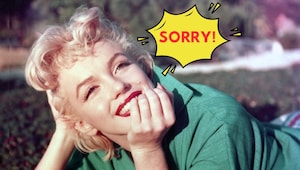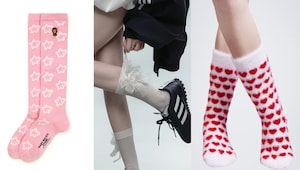If You Have Serious Acne All the Time
Clear skin ahead...

Mornings were the worst. I felt dread before I even opened my eyes. I knew what I’d see in the mirror, but each day, I hoped it would be different. It never was. My teenage face was still crowded with painful acne cysts ranging from red to purple, like a Martian landscape. I hated looking at myself, so I could hardly blame the reactions I got from others.
Strangers at the grocery store told me what I’d done to cause my acne (used too much hairspray, drank too much soda). My classmates gave me a group lesson on how to wash my face while I fought back tears and listened. Once, a boy asked me out, only to call me later to tell me it had been a dare. As a result, my guard was always up, my stomach always churning. I avoided eye contact at all costs. I didn’t eat pizza in public, afraid I’d hear the obvious comparison. There are virtually zero pictures of me at this point in my life.
My acne made me feel totally isolated. Sure, I knew other people had bad skin, but no one’s was as severe as mine. It felt like a punishment. What had I done to deserve this? I wondered. I thought it would always be this way, something unchangeable, like height. I just wanted to disappear. So much so, I hoarded enough medicine (prescription painkillers, cough syrup, anything) in the event I just couldn’t face another morning. I wasn’t being overdramatic. Clinical depression may be two to three times more likely if you’re waking up with breakouts daily, according to a study in the Journal of Cosmetic Dermatology.
Luckily, I never had the chance to do anything dire. My mother—and a doctor who prescribed me a controversial treatment— saved me in time.
The medicine was called isotretinoin, sold under the brand name Accutane, explained Esta Kronberg, MD, my new Houston- based derm. It had only been FDA-approved for a few years, and she had just started prescribing it. As she took pictures of my teenage face, I tried not to feel too hopeful as she explained how this daily pill took an entirely different approach to treating the condition. It was specifically effective on the cystic bumps that I was suffering from.
Isotretinoin works through a variety of mechanisms, but the primary one is that it decreases proliferation of cells in the oil glands, in part through apoptosis— or programmed cell death, says Diane Thiboutot, MD, professor of dermatology at Penn State College of Medicine. Since the oil feeds the specific form of acne bacteria (called P. acnes), once you take away the food (oil), you take away the inflammation.
Within the first month, my skin began to clear. In nine months, I was completely clear. Seriously. (The only side effect I experienced: my skin and lips became extremely scaly due to decreased oil production. It’s common.) While my skin underwent a miracle transformation, so did my day-to-day. Once I felt people weren’t staring at my skin, my confidence increased. My mom said I started to smile more. I even tried out for a play. (Months before, just the idea of being onstage would have put me into a panicked state.) The following year, I met my first boyfriend and went on my first date. About 85 percent of those on isotretinoin see similar success to mine, according to the American Academy of Dermatology. “To date, the efficacy of isotretinoin has not been superseded by any other treatment,” notes a 2009 review in the journal Dermato-Endocrinology.
I knew about Accutane’s troubled reputation—the drug has been linked to severe depression. But it completely lifted mine, if not saved my life.
By Liesa Goins
This article was published in the August 2016 issue of Cosmopolitan India.
more from Beauty

Why the angular bob haircut is the ultimate New Year glow-up

Beauty sticks are everywhere right now and these are the products worth trying

What to say to someone going through a breakup instead of “I’m sorry”

All the cobalt blue essentials you need for your 2026 wardrobe revamp

How to break your screen addiction without going off the grid

So many truly wild things happened during the 'Emily in Paris' season 5 finale

Fun cosy socks you should invest in while winter is still around

Every couple should fight (Taylor and Travis included)

How ‘The Housemaid’ movie stacks up to the book

Emily is heading back to Paris for season six but is this where we say goodbye?
